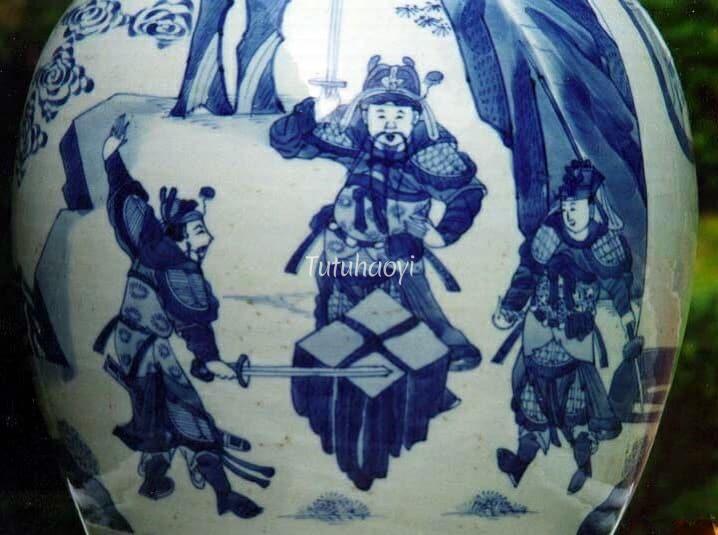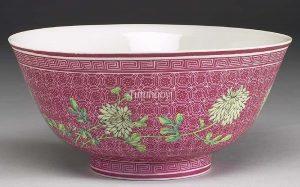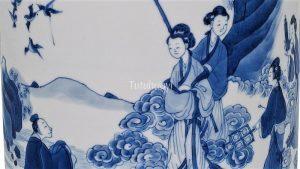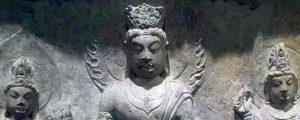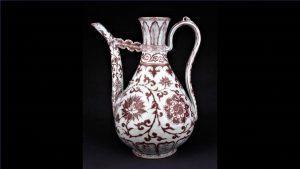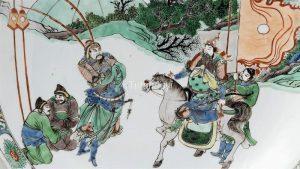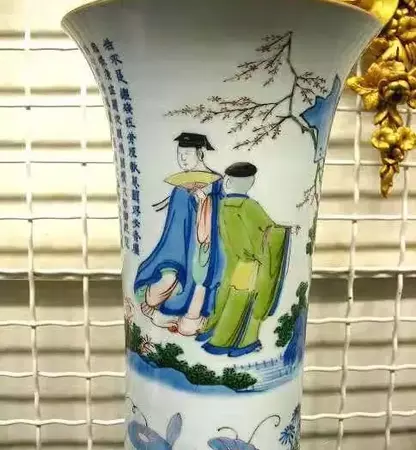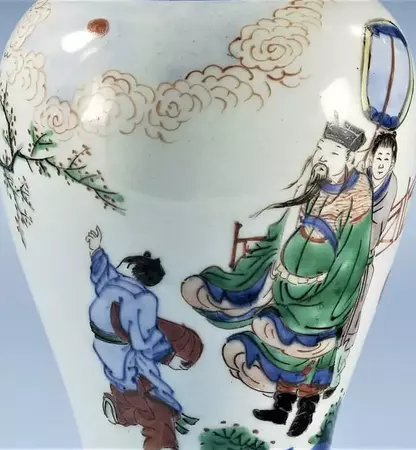Do you wonder why two warriors are waving swords over a rock that looks like a cross bun? This is not a scene of some mystic ritual. Let Dr Yibin Ni demystify this enigmatic scene for you, which illustrates an old Chinese saying- ‘bedfellows dream different dreams’!
featured image above: blue-and-white porcelain jar, Kangxi period (1662-1722), Qing dynasty, courtesy of Mr Chen Minliang’s private collection, Singapore
In the 14th-century historical novel, Romance of the Three Kingdoms (三国演义, Sānguó Yǎnyì), the generals in the Dongwu (东吴) kingdom conspire to murder Liu Bei (刘备), head of the Shu Han (蜀汉) kingdom, by inviting him to their territory with the promise of the king’s sister for his wife.
Suspecting that it is a trap, Liu Bei’s side decides to go and call the enemy’s bluff. When Liu Bei meets the Queen Mother in Dongwu, she is so taken with him that she wants him for a son-in-law. Her son, the king Sun Quan (孙权), is naturally uneasy about her eagerness because, according to the plan, Liu Bei is going to be their captive and murdered.
When an aide informs Liu Bei that armed men are hidden behind the curtains and in the corridors, Liu Bei complains to the Queen Mother, who reproaches her son. Feigning ignorance, Sun Quan blames his retainers instead. When things have calmed down, Liu Bei goes out to wash his hands.
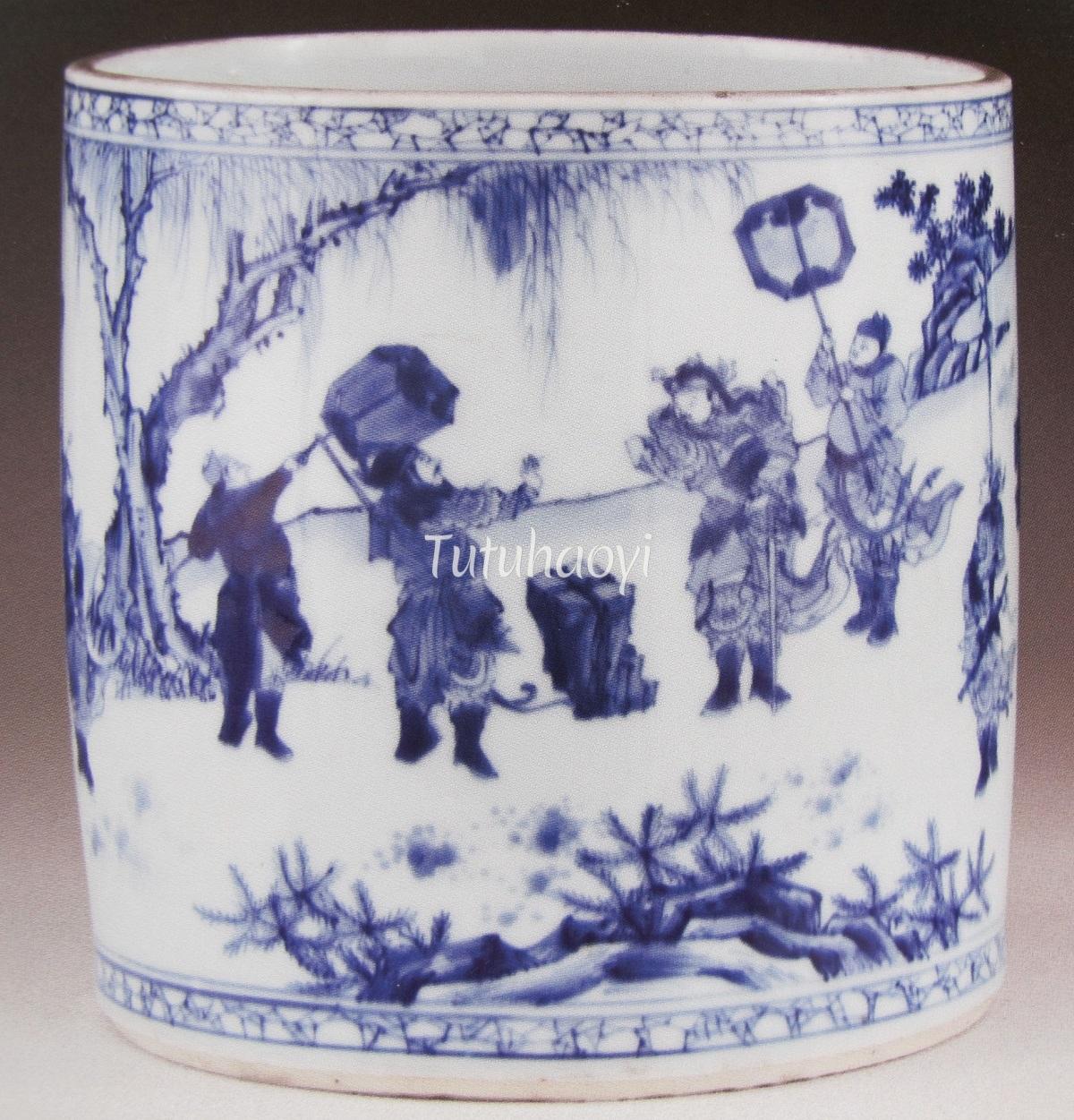
As he passes a large rock, an inspiration seizes him: taking an attendant’s sword, he lifts his head towards Heaven and pledges, ‘If I am destined to return to Jingzhou (荆州) and complete my mission of reviving the Han, let this sword cut through the stone. If I am to die here, let the stone remain intact.’ As he strikes, the stone splits in two. Sun Quan, who comes to observe Liu Bei from behind, steps forward and asks Liu, ‘Lord Liu, what grudge do you bear this stone?’ Liu Bei replies, ‘I am nearly fifty but still have a long way to go in my mission of punishing traitors. I put a question to Heaven, “If we are to destroy the traitor Cao Cao (曹操), let the stone crack.”’
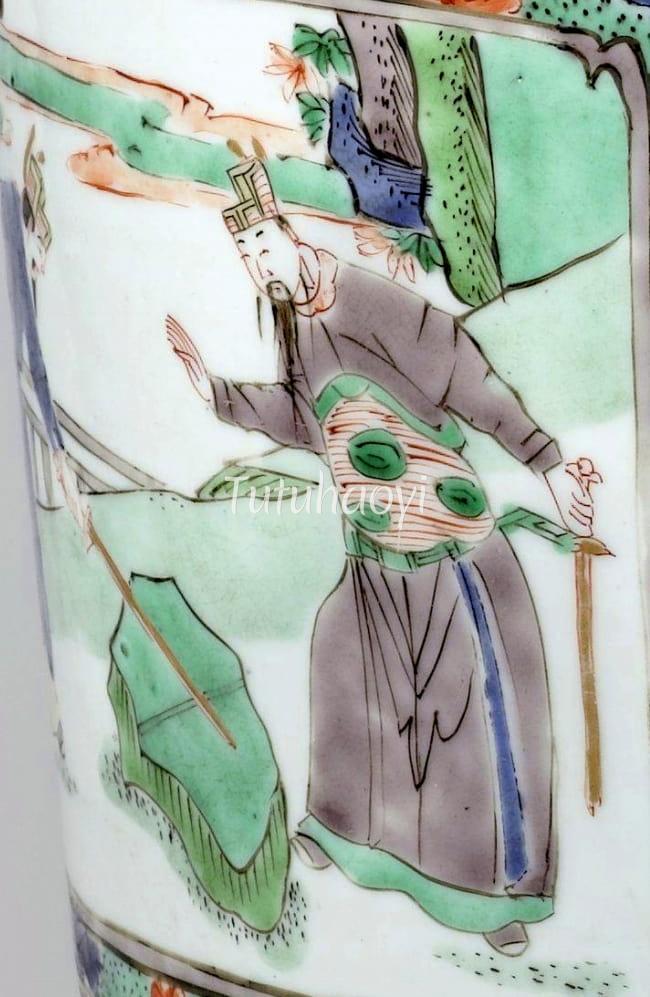
The sceptical king then grips his own sword and cries, ‘I, too, shall put a question to Heaven.’ To himself, Sun Quan swears, ‘If I am to regain Jingshou and if Dongwu is to thrive, let the rock split!’ He too brings his sword down and the giant stone breaks again.
This tale aptly illustrates the expression, ‘being strange bedfellows,’ i.e., sharing the same bed, but having different thoughts and dreams!
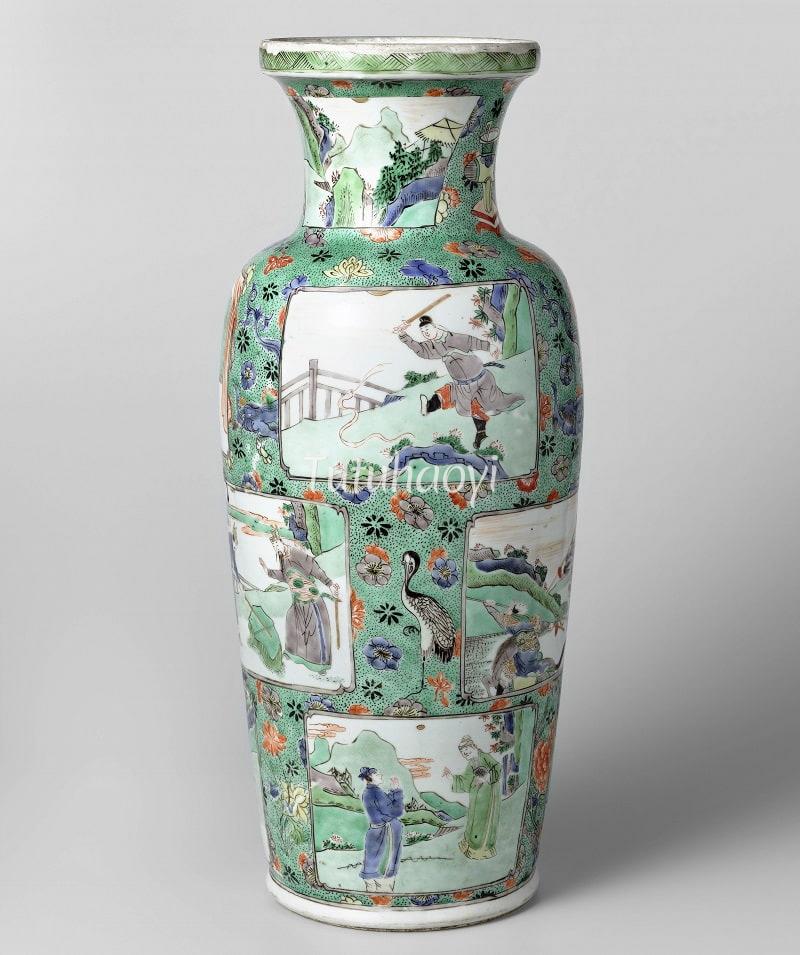
Dr. Christiaan Jörg published this magnificent Kangxi vase in Famille Verte: Chinese porcelain in green enamels (Groningen 2011, p. 78) and said ‘Only three of the nine illustrations on the vase could be identified.’ Now I have identified the fourth one and just shared its fascinating story with you!
If you have a picture of the other side of this Rolwagen vase that is now kept at Rijksmuseum, Holland, please contact me and I may be able to demystify more scenes depicted on it!
The findings and opinions in this research article are written by Dr Yibin Ni.
